 History
History  History
History  Health
Health 10 Everyday Activities That Secretly Alter Consciousness
 History
History Top 10 Historical Disasters Caused by Someone Calling in Sick
 Animals
Animals 10 New Shark Secrets That Recently Dropped
 Movies and TV
Movies and TV 10 Forgotten Realities of Early Live Television Broadcasts
 Technology
Technology 10 Stopgap Technologies That Became Industry Standards
 Weird Stuff
Weird Stuff 10 Wild Facts About Taxidermy That You Probably Didn’t Know
 Travel
Travel 10 Beautiful Travel Destinations (That Will Kill You)
 Miscellaneous
Miscellaneous 10 Modern Marriage Rituals Born from Corporate Branding
 Weird Stuff
Weird Stuff Ten Bizarre Visions of 2026 from Fiction
 History
History 10 “Modern” Problems with Surprising Historical Analogs
 Health
Health 10 Everyday Activities That Secretly Alter Consciousness
 History
History Top 10 Historical Disasters Caused by Someone Calling in Sick
Who's Behind Listverse?

Jamie Frater
Head Editor
Jamie founded Listverse due to an insatiable desire to share fascinating, obscure, and bizarre facts. He has been a guest speaker on numerous national radio and television stations and is a five time published author.
More About Us Animals
Animals 10 New Shark Secrets That Recently Dropped
 Movies and TV
Movies and TV 10 Forgotten Realities of Early Live Television Broadcasts
 Technology
Technology 10 Stopgap Technologies That Became Industry Standards
 Weird Stuff
Weird Stuff 10 Wild Facts About Taxidermy That You Probably Didn’t Know
 Travel
Travel 10 Beautiful Travel Destinations (That Will Kill You)
 Miscellaneous
Miscellaneous 10 Modern Marriage Rituals Born from Corporate Branding
 Weird Stuff
Weird Stuff Ten Bizarre Visions of 2026 from Fiction
10 Tragic Tales Of Modern People Forced Into Exile
Ovid called exile a “living death.” While most of us are probably aware it isn’t all fun and games and unicorns snorting pixie dust, it can still come as a shock to realize how horrifying being cut off from your friends and homeland really is.
10Uzbekistan’s Nameless Writer
In 1992, Hamid Ismailov needed to get away from Uzbekistan till things cooled down. He’d recently done a controversial freelance job with the BBC, and word was out that the authorities weren’t happy. Figuring any blowback would be temporary, Ismailov left the country, fully expecting to return within a few months or a couple of years. Fast-forward to 2015, and he’s still waiting.
Uzbekistan isn’t a country you want to get on the wrong side of. Dictator Islam Karimov is infamous for boiling dissidents alive. His regime is so repressive that even the Red Cross, which has branches in Zimbabwe and North Korea, refuse to work there. In the years since 1992, the full force of the Uzbek state has been turned on their exiled writer in the hopes of erasing him from history.
According to an interview Ismailov gave to the Guardian, he’s been effectively wiped out from Uzbek culture. His books and articles are banned, as is mentioning them. Even his name has been made to vanish. Anybody who puts the words “Hamid Ismailov” in print can expect to face the same fate as Muhammad Bekjanov; a dissident journalist who has been imprisoned and tortured for the last 16 years. Ismailov keeps writing. But at home, where it matters, no one has ever heard of him.
9The Tiananmen Square Protester Who Tried To Go Home
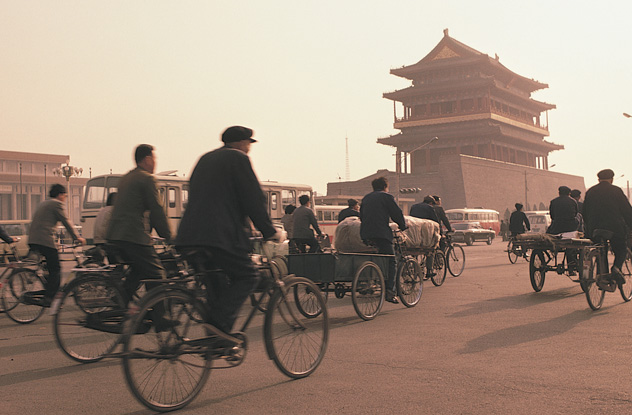
On June 4, 1989, student protest leader Zhou Fengsuo watched in horror as the Chinese military moved into Tiananmen Square. Tanks smashed through barricades. Gunfire mowed down students, women, and children. Zhou Fengsuo was captured, imprisoned, and left to rot for a year. Four years after that, he was kicked out of China and into exile. Two decades after that, he decided to return.
This wasn’t like one of us going home for the holidays. Zhou, now head of a humanitarian charity, was still a wanted man in China. Nonetheless, in 2014, Zhou boarded a plane for Beijing, fully expecting to be turned back at the airport. Instead, an unobservant customs official waved him through. For the next 72 hours, Zhou was at large in the country that had abandoned him.
The story of how he filled those hours is heartbreaking. Zhou’s first act was to go to a detention center where friends were being held and try to get them money. It brought him face-to-face with the Beijing police, who didn’t recognize him. Turned away, Zhou spent the next few hours drifting aimlessly round the streets of his youth, reliving the moment the hope of 1989 was finally crushed. Eventually, he found himself back in Tiananmen Square. He later said, “I thought I would explode. But I knew that even if I used my loudest voice, I would just disappear in a minute.”
Rather than make some grand gesture on the site of the massacre, he returned to his hotel, where police arrested him 20 minutes later. After an 18-hour interrogation, they put him on a flight to the US. Zhou’s last trip home was over. It’s unlikely he’ll ever be able to return again.
8The Journalist Who Watched Venezuela Implode
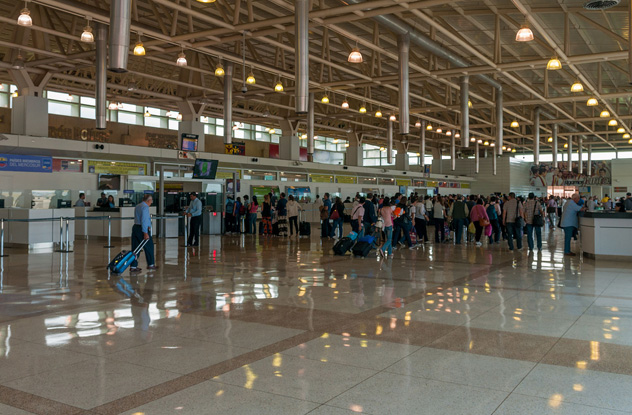
Simon Bolivar International Airport in Caracas is home to an unusual piece of art. A vast mosaic made up of glowing, interlocking shapes, it stretches across the entire departure lounge. Since 1979, it has mesmerized travelers leaving Venezuela. Today, it has a much sadder purpose. For the country’s exiled journalists, a photo of their own feet crossing the tiles has become the symbolic last picture they ever take of their home country.
For Rafael Osio Cabrices, that moment came in March 2014. Chased out by the threats journalists received in Caracas, he, his wife, and their daughter stood over the multicolored tiles and snapped one last shot. Then they boarded a plane to Florida and left while Venezuela burned. Writing about the experience for Zocalo Public Square, Cabrices later said he felt like Princess Leia “watching her home planet Alderaan explode from a window of the Death Star.”
Cabrices’s story represents an entire segment of Venezuelan society. With the country teetering on the edge of collapse, the middle classes are fleeing. Those who leave rarely have much chance of going back. Stuck outside, they simply have to stand and watch as everything they loved goes up in flames. As Cabrices wrote of his new home, “I have to reinvent myself; nobody here cares that I was a writer in another country, in another language, in another saga. It’s up to us to fit into this old, welcoming city, and connect to its narratives, even as we keep an eye out the window, on Alderaan’s remains.”
7Gambia’s Gay Exiles
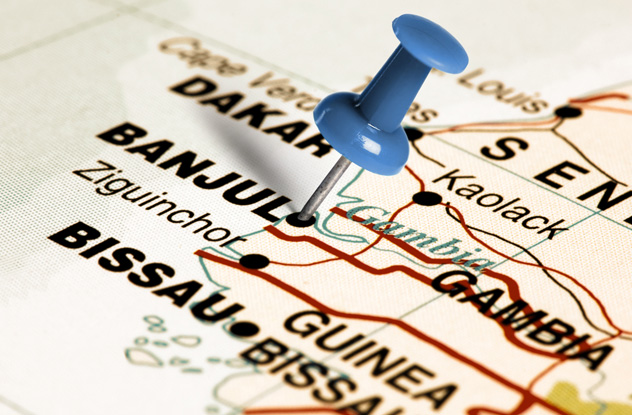
A tiny country on the edge of Africa, the Gambia is one of the worst places in the world to be gay. President Yahya Jammeh has personally vowed to slit the throats of any gay Westerners who visit his country, and gay natives are classed similarly low. In such a repressive atmosphere, it’s no wonder many gay men and women choose to flee across the border.
Unfortunately, this quickly becomes a case of “out of the frying pan, into the fire.” The only option for most Gambians leaving the country is to cross into Senegal, another country where homosexuality is illegal. They remain in immediate danger and are frequently denied refugee status. Those who carry on to Kenya or Uganda put themselves at even worse risk. There have been reports of mobs attacking suspected gay refugees and sometimes raping them.
A man called Alhaji who spoke to the Huffington Post said he’d been stuck in Senegal for more than a year without access to food or basic health care. Unable to return home, unable to live a normal life in his new country, he had no choice but to wait and see what fate held in store for him.
6The Defector Who Wants To Return To North Korea
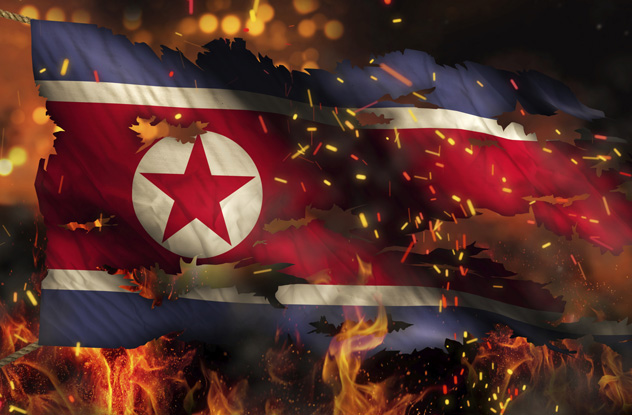
Son Jung-hun first realized the game was up when an official accused him of stealing $10,000. A trade official for the Kim regime in Pyongyang, Son knew the fate that would await him if found guilty in North Korea’s infamous prison camps. Hiring a truck, he drove across the border into China before fleeing on to South Korea. There, he joined up with the thousands of other DPRK defectors, exiled for life from the country of their birth.
But Son Jung-hun is a defector with a difference. A dozen years after fleeing North Korea, he wants to go back.
It’s a strange twist in a tale about escaping one of the harshest dictatorships on Earth. North Korean defectors are liable to experience unimaginable torture if caught. Their families are rounded up and sent to remote prison camps to be worked to death. It’s tempting to ask what could possibly drive someone back to such a place. The answer is money.
In an interview, Son claimed his new life in South Korea was unlivable. According to him, the government has recently started abandoning defectors to sink or swim in a market economy they don’t understand. To capitalize on this, Kim Jong-un’s staff are offering defectors $45,000 to return and be turned into propaganda weapons. Fed up of being poor, marginalized, and ignored, Son is sorely tempted.
He isn’t the only one. Dozens of defectors are now looking to return to the North, most because they miss their families so much that they’d rather face prison than go on living without them.
5The Whole University In Exile

A small country to the north of Ukraine, Belarus is frequently described as the last dictatorship in Europe. Although some dispute that title, life under President Lukashenko is severely restricted. In 2003, the government even managed to exile an entire university.
Opened by Anatoly Mikhailov in 1992, the European Humanities University was created to teach students in the post-Soviet state a different way of seeing. Rather than focusing on business and parroting Belarusian state propaganda, it asked its students to think critically. Courses were run on philosophy, theology, art history, and Ancient Greek. It became a sensation both at home and internationally. Then, in 2003, the Belarusian Education Minister tried to remove Mikhailov from his post for being too Western. Mikhailov refused, and the entire university was forcibly shut down.
Rather than give in, Mikhailov chose to relocate. With help from the nearby Lithuanian government, he moved the entire faculty and all the students to Vilnius. Unfortunately, they couldn’t escape the repression. Although EHU students are free to study what they like in Lithuania, they are targets for the regime the moment they return home. Peaceful students have been detained and arrested, had their passports confiscated, and have been jailed on trumped-up charges. For many, the choice is now between a free education and freedom from persecution, a choice no one should have to make.
4The Baha’i Student Forbidden To Study In Iran

At an age when the biggest problem most of us had was what party to hit, Hesam Misaghi was being smuggled out of Iran on horseback. Not long beforehand, the Iranian government had threatened him with life imprisonment, necessitating Misaghi’s daring escape across the frozen mountains in the north. His crime? Misaghi had asked to go to university.
As a member of the Baha’i faith, Misaghi has few rights in his home country. The Iranian government has made it legal to attack and murder Baha’is and destroy their property. Children are harassed at schools, parents are forbidden from passing their religion on, and young adults are barred from entering the Iranian University system. So when Misaghi reached the age of 21, he had two choices: to keep his head down and give up on his education, or make a stand. He chose option two.
The choice saw him harassed by state security, cut off from his family, and forced into hiding. In the context of the recently failed Green Revolution, Misaghi’s demands were unthinkable. Like hundreds of thousands of Baha’is before him, he ultimately fled the country. Now in Germany, Misaghi is able to study but with one catch. He can never go home again, not without risking a life in Iran’s fetid jails.
3The Director Who Returned To Pinochet’s Chile

If you’re unaware of the carnival of horrors that was Chile under Augusto Pinochet, you should know we once devoted an entire article to it and still had to leave stuff out. Director Miguel Littin experienced it firsthand. Exiled to Mexico following the coup, he spent decades cut off from his home under threat of a very painful death. Then, in 1985, Littin decided to return. The decision very nearly cost him his life.
As recounted in Gabriel Garcia Marquez’s book Clandestine in Chile, the only way for Littin to return was to adopt a new identity. Posing as a Uruguayan businessman, he managed to obtain a false passport from the Chilean resistance. He spent weeks training himself out of his Chilean accent and hired a female friend to play his fictitious wife. Finally, he made it across the border, at which point a slipup with his accent very nearly led to his arrest and torture.
In the end, though, Littin managed to stay undetected in Chile for six whole weeks. His adventures at the time were depressing in the extreme. Returning to a square he used to frequent, he found life had moved on since the coup, with the massacres seemingly forgotten. When he visited his own mother, he found she didn’t recognize him after a decade apart. Eventually, his identity was compromised, and Littin had to flee once again, exiled from his country twice in one lifetime.
Luckily, this tale has a happy ending. When Pinochet stepped down in the 1990s, Littin was at last able to return to Chile again. This time, he did it legally.
2Afghanistan’s Child Exiles
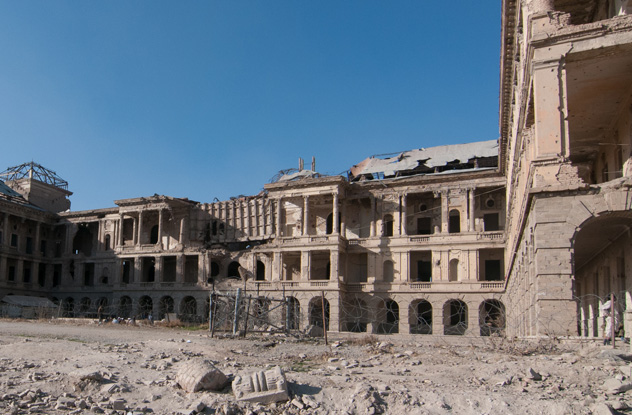
Welcome to Pakistan’s borderlands, where 1.6 million Afghans have fled since the first wars began to tear their nation apart. As generation after generation poured into the slums of Islamabad, a new group of children emerged: the exiles born in Pakistan but yearning for Afghanistan, unable to fit into their country of birth and equally unable to go home.
Those who do try to return frequently find themselves in dire situations. Eight-year-old Hasanat managed to get a ride on a truck from Pakistan but was abandoned across the border in the middle of nowhere. Too young to find his own way back and unsure even what part of the country his family home might be in, he wound up living on the streets until a local shopkeeper took pity on him. While Hasanat eventually reunited with his Afghanistan family, many others are far less lucky.
Because of Afghanistan’s strong tribal and village culture, many kids who return find themselves cut adrift from the complex network of relationships around them. They are abandoned all over again, unable to make money or buy food. Thanks to Pakistan’s recent policy of deporting Afghans born in exile, a whole new class of internal exiles is being born.
1The Exiled Eritrean Priest Bringing Hope To Millions
If you’re ever in the dark jail cells of Libya or find yourself on a boat used to bring migrants across the treacherous Mediterranean, you may notice a string of digits written on the wall. They belong to an exiled Catholic priest named Abba Mussie Zerai, who was born in Eritrea but now lives in Switzerland. Today, those little numbers bring hope to millions.
Driven out of Eritrea when the country imploded in the 1990s, Zerai spent years in Italy working menial odd jobs. He was occasionally discriminated against but was largely left alone. Eventually, he became a priest and was accepted into the Vatican. Then came the outpouring of refugees from North Africa into Europe. With thousands of his fellow exiles hopelessly dying at sea, Zerai tried to do something about it. Years later, he’s still trying.
Thanks to connections with African immigrant centers and jails in repressive countries, Zerai has managed to get his phone number out to thousands of people fleeing wars and repression. When people call him while on desperate voyages, he’s known to move heaven and earth to save them from drowning. With the help of telecoms companies, Zerai pinpoints the coordinates of those who phone him and alerts the authorities. It’s thought that thanks to his efforts, thousands of migrants are alive today who would otherwise have drowned.
For millions of North African exiles, Zerai has now become a figure of hope—the man who saves them from the sea. Such crossings may still be the stuff of tragedy, but Zerai is making sure not all stories end that way. Thanks to him, many exiles to Europe now have a chance to turn their tales from an unimaginable tragedy into one of cautious hope.








